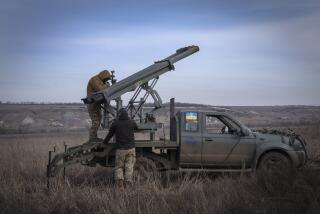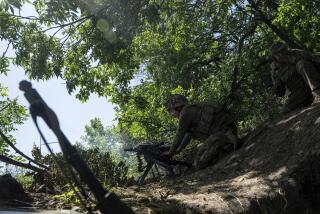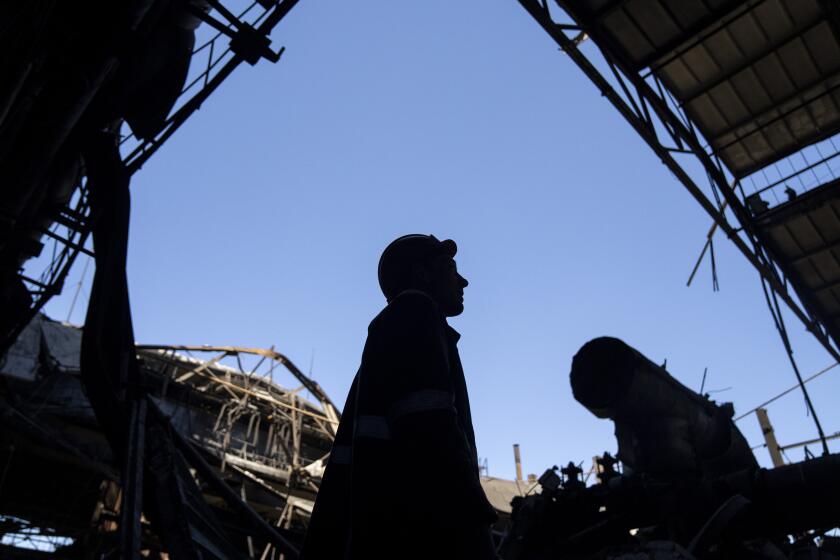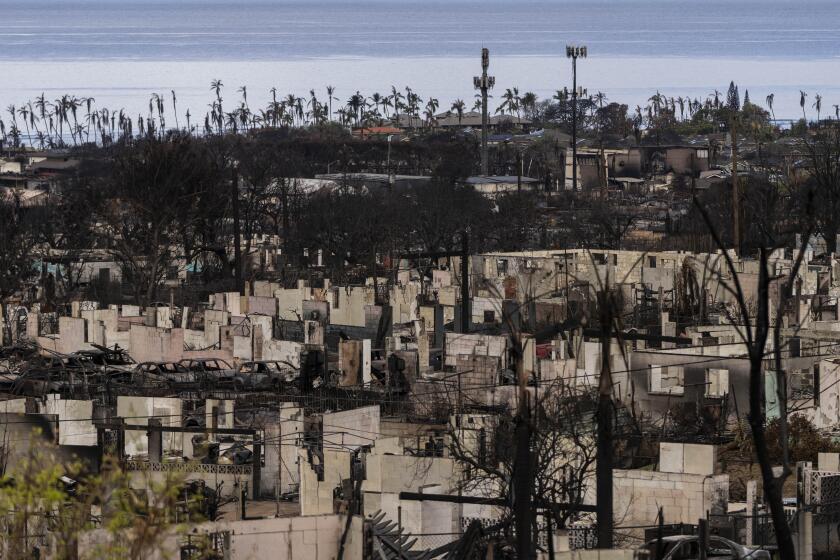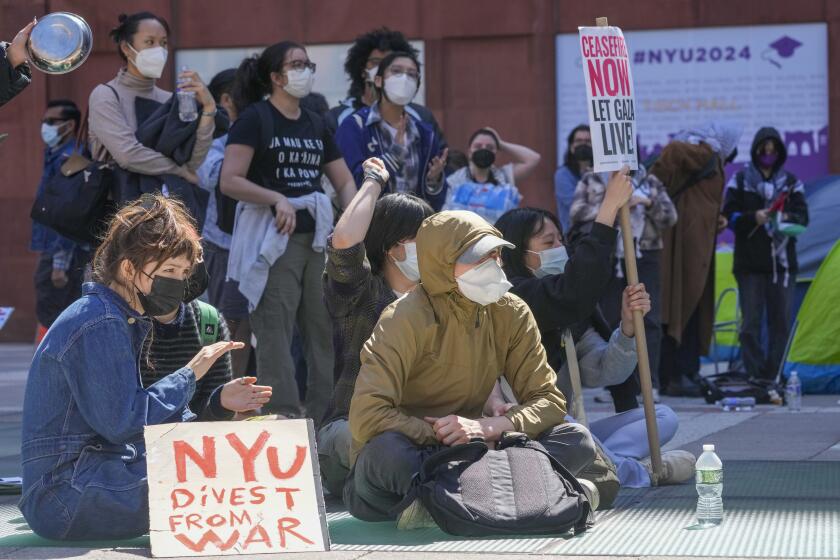Obama gives assurances to Ukraine’s acting prime minister
WASHINGTON — President Obama assured acting Ukrainian Prime Minister Arseny Yatsenyuk on Wednesday that Russia would suffer significant consequences if it stayed on its military path toward Ukraine, a threat the Pentagon bolstered by acknowledging plans to fortify the U.S. military presence in the region.
Speaking in the Oval Office on Wednesday with Yatsenyuk at his side, Obama vowed that the U.S. and other countries would be “forced to apply a cost” to Russia if President Vladimir Putin didn’t loosen his grip on Ukraine’s Crimea region.
“There’s another path available, and we hope that President Putin is willing to seize that path,” Obama said. “But if he does not, I’m very confident that the international community will stand strongly behind the Ukrainian government in preserving its unity and its territorial integrity.”
As he spoke, Pentagon officials were preparing to send a dozen F-16 fighters and 300 troops to Poland to reinforce allies in Eastern Europe. A senior military officer said Obama was also likely to order the aircraft carrier George H.W. Bush to remain in the Mediterranean instead of staying on course to the Persian Gulf, in response to the crisis that began when Putin dispatched troops to Crimea.
U.S. officials have made it clear that the administration has no intention of using military force in Ukraine, but has wanted to reassure Poland and the Baltic nations, which unlike Ukraine are NATO members, of continued U.S. support.
U.S. Defense Secretary Chuck Hagel and his Polish counterpart, Tomasz Siemoniak, agreed to the deployment during a phone call Sunday, according to the Polish Defense Ministry.
The moves come as Ukraine prepares for a referendum this weekend in Crimea, where voters, a majority of whom are Russian speakers, are expected to back secession. Officials in Kiev, the Ukrainian capital, say they are still open to negotiations with Moscow that might lead to a new status for Crimea, but not with Russian troops still in control of the region.
The heads of the Group of 8 industrial powers, with the exception of Russia, put out a statement Wednesday calling on Moscow to stop all actions in support of the referendum. In a jab at Putin, they issued their statement as “the G-7 leaders.”
Yatsenyuk thanked the Western nations for their support, but lamented the failure of world organizations to resolve the Ukraine crisis. If Putin were allowed to take Crimea, Russia’s expansion might not stop there, he warned.
“There’s no clear-cut response,” Yatsenyuk said during remarks to the Atlantic Council, a Washington think tank. “The global bodies responsible for security are not as efficient as they need to be.”
The loss of Crimea would set a damaging precedent in part because it would show countries that consider surrendering their nuclear weapons — as Ukraine did in the mid-1990s — that treaties assuring their security have no value. When it gave up the nuclear arms it had inherited after the breakup of the Soviet Union, Ukraine signed an agreement with Russia, the U.S. and Britain that declared it would remain in one piece.
If ethnic fighting starts in eastern Ukraine, “it would have no end,” Yatsenyuk said. If Russia’s aim is to re-annex the former Soviet territories that became independent in 1991, he added, that would be “the biggest disaster of this century.”
Yatsenyuk planned to follow up with visits to ask for support on Capitol Hill, where Democrats and Republicans alike are warm to his message but have had difficulty following through with action.
Lawmakers have overwhelmingly agreed to condemn Russian military action in Ukraine, but have failed to approve a package of $1 billion in loan guarantees for the interim Ukrainian government.
The diplomatic maneuvering has done little to persuade analysts that anything will derail the Crimean referendum or result in a different outcome when the region’s voters go to the polls.
“The referendum is going to take place, and the people of Crimea are going to vote to join the Russian Federation,” said James Goldgeier, a former national security official in the Clinton White House who serves as dean of the School of International Service at American University.
“The only question is: Will Russia decide to act on that immediately? Or will they create some kind of process by which the status of Crimea is in limbo for some period of time?
“Putin can decide to move quickly or slowly,” he said.
Times staff writers Paul Richter and Lisa Mascaro contributed to this report.
More to Read
Start your day right
Sign up for Essential California for news, features and recommendations from the L.A. Times and beyond in your inbox six days a week.
You may occasionally receive promotional content from the Los Angeles Times.

